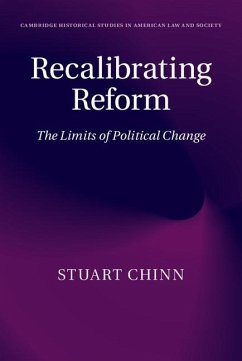Some of the most important eras of reform in US history reveal a troubling pattern: often reform is compromised after the initial legislative and judicial victories have been achieved. Thus Jim Crow racial exclusions followed Reconstruction; employer prerogatives resurged after the passage of the Wagner Act in 1935; and after the civil rights reforms of the mid-twentieth century, principles of color-blindness remain dominant in key areas of constitutional law that allow structural racial inequalities to remain hidden or unaddressed. When momentous reforms occur, certain institutions and legal rights will survive the disruption and remain intact, just in different forms. Thus governance in the post-reform period reflects a systematic recalibration or reshaping of the earlier reforms as a result of the continuing influence and power of such resilient institutions and rights. Recalibrating Reform examines this issue and demonstrates the pivotal role of the Supreme Court in post-reform recalibration.
Dieser Download kann aus rechtlichen Gründen nur mit Rechnungsadresse in A, B, BG, CY, CZ, D, DK, EW, E, FIN, F, GR, HR, H, IRL, I, LT, L, LR, M, NL, PL, P, R, S, SLO, SK ausgeliefert werden.


